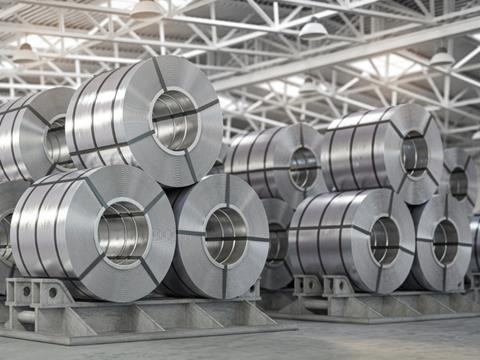
Aluminium Deutschland (AD) says that despite an agreement in the EU-US customs conflict, the outflow of aluminium scrap from Europe remains unresolved, with its recycling industry warning of a permanent loss of raw materials and calling for immediate export restrictions.
The association states that aluminium products will continue to be subject to a significantly increased tariff rate of 50% even after the agreement, while aluminium scrap will be subject to a tariff rate of 15%. This means aluminium scrap can be exported to the USA at “much more attractive conditions” than primary and semi-finished products, for example.
AD expresses its concern that even before the customs conflict, large customer markets such as India, Malaysia and China already introduced their own export restrictions on aluminium scrap, meaning European recycling companies are falling further behind internationally. EU Commission president Ursula von der Leyen suggested possible tariff reductions and a quota system for steel and aluminium - however, whether, to what extent and when these measures will become reality is unclear.
Rob van Gils, president of Aluminium Deutschland, warns: “The current customs regulations do not solve our problem, but only exacerbate the imbalance in the aluminium scrap market. The existing arbitrage window thus remains in place and threatens to become entrenched in the long term. We need horizontal export restrictions towards everyone on aluminium scrap more urgently than ever. This is the only way we can restore the balance in the scrap market, secure access to essential domestic raw materials and strengthen Europe’s industrial base in the long term.”
In March, the association expressed concern that America’s 25% tariff on aluminium imports does not include aluminium scrap, warning that this could have ‘fatal consequences’ for the German and European markets. It feared that if aluminium scrap remained duty-free, companies based in the US would keep purchasing scrap at ‘record prices’, believed to lead to ‘dramatic consequences’ including shortages and sell-offs in both Germany and Europe.
The following month the European Commission adopted the 2025-2030 working plan for the Ecodesign for Sustainable Products and Energy Labelling Regulations, with steel and aluminium among the list of priority products to implement eco-design requirements and energy labelling within the next five years. The Commission says it will consider the requirements of SMEs, especially micro-enterprises and small mid-cap enterprises, when developing its eco-design requirements.
If you liked this story, you might also enjoy:
The ultimate guide to the Packaging and Packaging Waste Regulation in 2025
How are the top brands progressing on packaging sustainability?
Everything you need to know about global packaging sustainability regulation in 2025
The key to increasing the use of reusable packaging in supermarkets













No comments yet